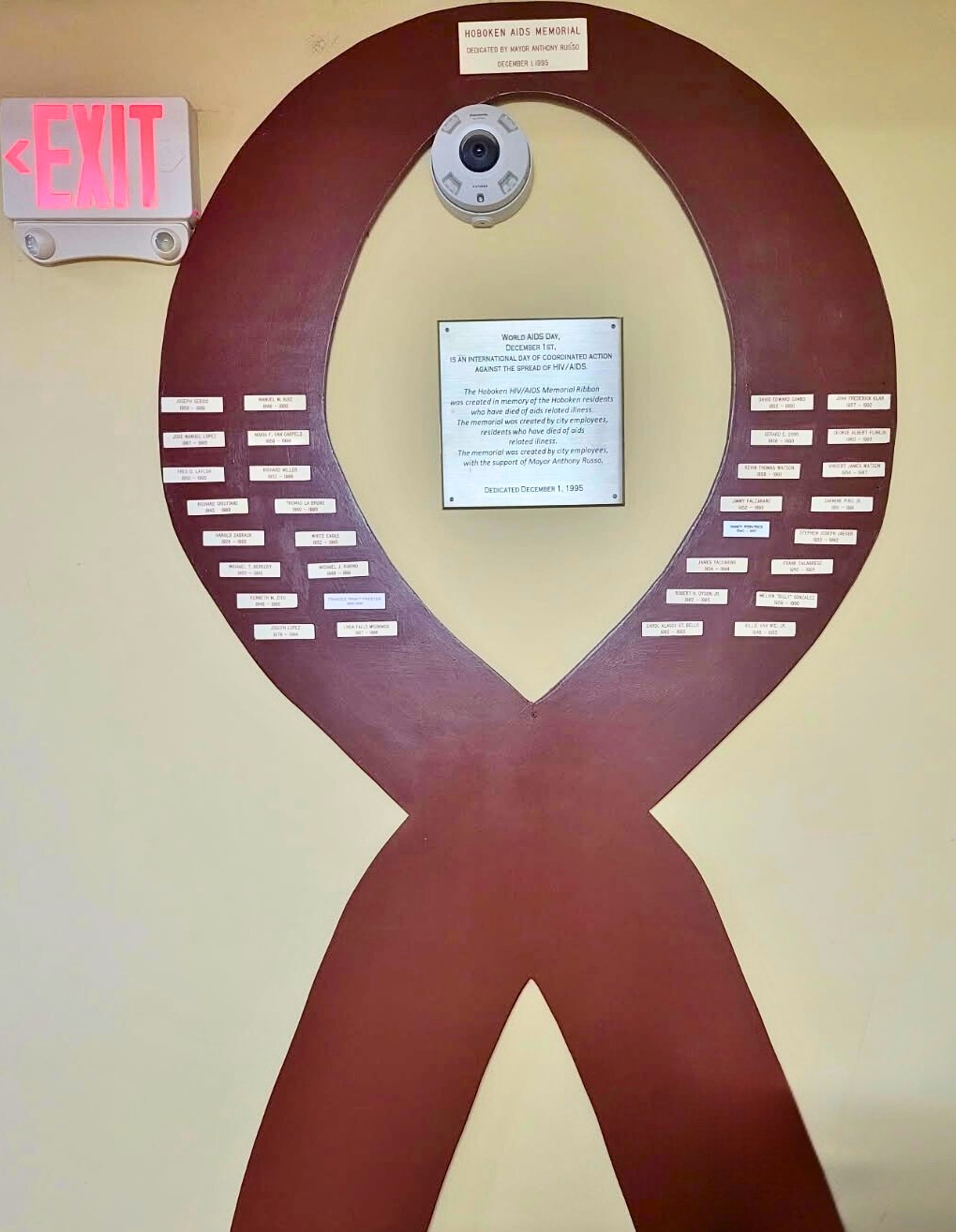Mayor Ravi S. Bhalla, the City of Hoboken, and the Hoboken Arts Advisory Committee today announced plans to restore and relocate the handcrafted AIDS Memorial Ribbon currently located on the third floor of City Hall. Originally created in 1995 by municipal employees, the memorial was constructed as a tribute to Hoboken residents who lost their lives to AIDS and AIDS-related complications.
Now, three decades after it was first displayed, the City and the Arts Advisory Committee will revitalize and preserve the memorial while expanding it to honor additional community members. As part of this effort, the City is inviting the public to submit names of additional Hoboken residents who died from AIDS or AIDS-related complications. These names will be incorporated into the updated memorial, which will be relocated to the first floor of City Hall where the memorial was originally unveiled. The City will also create an online memorial page with information about each of the individuals represented on the memorial.
Submissions should be made online at https://seam.ly/3C322DZx and include the decedent’s name, picture, a brief memory or obituary, and their date of birth and date of death. The deadline for submissions is Friday, Nov. 7. Questions can be emailed to the City’s Public Arts Administrator Annie McAdams at amcadams@hobokennj.gov
“This memorial stands as a lasting tribute to those in our community whose lives were cut short by the AIDS epidemic,” said Mayor Ravi S. Bhalla. “By refreshing this memorial, we will honor the past and recommit ourselves to compassion, remembrance, and awareness because for many, AIDS was not just a medical crisis but a social one, revealing the inequities in how society treats our most vulnerable community members. I thank the Hoboken Arts Advisory Committee and the Division of Cultural Affairs for leading this important effort so that we can preserve local history, recognize the lived experiences of those affected by AIDS, and reflect on its impact on Hoboken.”
AIDS was first formally recognized by the Centers for Disease Control and Prevention (CDC) in the early 1980s, and it became one of the most significant global public health crises of the 20th century. In the United States more than 700,000 people have died from HIV/AIDS-related complications according to the CDC. Major urban areas, including cities in the New York metropolitan area, experienced high rates of infection and loss, especially during the 1980s and 1990s when effective treatments were not yet widely available.
The epidemic was also marked by widespread social stigma and misinformation. People living with HIV/AIDS often faced discrimination in housing, employment, and healthcare. Marginalized communities, such as those in the LGBTQ+ community, people of color, and those living in poverty, were disproportionately affected by the disease and the lack of access to adequate medical care and public support.
